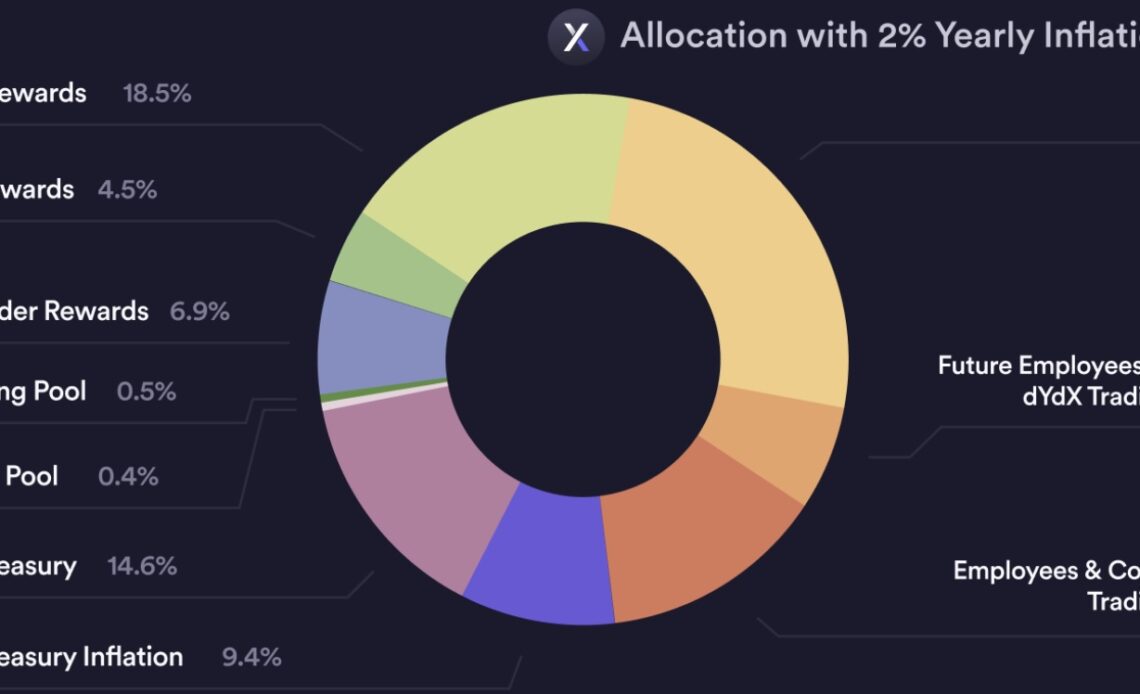On Jan. 24, the dYdX Foundation, the entity responsible for the dYdX decentralized crypto exchange, announced “changes” to its tokenomics — the way it distributes tokens to early investors, employees and contractors, and, of course, the public.
So, what’s uncommon about the situation? The project’s foundation, in agreement with dYdX Trading Inc. and its early investors, decided to amend the project’s tokenomics and extend the period for which such investors’ initial batch of tokens would be locked, changing the date from Feb. 1 to Dec. 1, 2023. Whether this was a good or a bad thing depended on which side of the trade one was on. On the one hand, investors agreeing to hold their tokens for a longer period suggests a vote of confidence on their part in the project’s long-term success. On the other hand, anyone taking a short position in dYdX in anticipation of the increased supply might have been disappointed, as the token’s price rocketed following news of the amendment.
Related: My story of telling the SEC ‘I told you so’ on FTX
But why the delay? Although dYdX is not officially available in the United States, recent victories in enforcement actions on the part of the Securities and Exchange Commission may have prompted a heart-to-heart chat between the foundation and its attorneys. Now, whether the DYDX governance token might ultimately be viewed as a “security” under U.S. law could fill volumes and is outside the scope of this article. What matters is: Why would the signatories to the amendment to the lockup documents consent to a longer lockup? Why not let the tokens unlock and simply hodl them?
In the United States, all offers and sales of “securities” are either registered, exempt or illegal. Specific rules apply not only to the initial offer and sale of securities but also to resales — that is, sales by existing tokenholders to others. As a general matter, one may not serve as a conduit (legally speaking, an “underwriter”) between the issuer of the securities and the general public without following certain rules. Securities received in exempt offerings are referred to as “restricted securities,” and resales of the securities are an illegal “distribution” unless a safe harbor applies.
One such safe harbor is Securities Act Rule 144. One must follow the restrictions of Rule 144 in order to qualify for relief and sell without fear of being deemed an…
Click Here to Read the Full Original Article at Cointelegraph.com News…
























